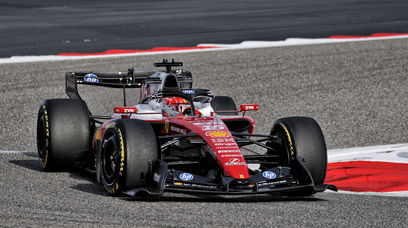Discussions continue regarding F1's new engine formula, with hopes that the sport can attract big names Porsche and Audi, while keeping existing manufacturers happy. But what's the situation as it stands? RacingNews365.com provides an overview.
When were the last talks?
The last official meeting about F1's future engine regulations took place on the Sunday morning of the Italian Grand Prix, with several contentious topics covered. Existing manufacturers Mercedes, Ferrari, Renault and Honda were all represented ( RacingNews365.com understands that the Japanese manufacturer attended unofficially, ahead of their F1 departure), along with involvement from Porsche and Audi – both Volkswagen Group brands that have shown a keen interest in the direction the sport is taking. A short, joint statement from F1 and the FIA after the Monza meeting provided an encouraging update, with the suggestion that an agreement should be reached sooner rather than later. "Today a meeting took place involving the FIA, Formula 1, and existing and prospective power unit suppliers on the potential new power unit," read the statement. "The discussion was positive, and progress was made – some details remain to be addressed, however we expect these to be resolved in the coming weeks."
How different will the engine be?
One of the main developments from the latest meeting was the agreement in principle to drop the MGU-H for the next engine cycle. A complex element of the current turbo-hybrid power units, there were calls to remove the MGU-H several years ago, only for engine manufacturers to throw their support behind it – after Porsche withdrew from talks. However, the current manufacturers have now provisionally agreed to get rid of the MGU-H, providing new manufacturers enter the sport. If not, they would be wary of wasting huge investment and resources. In order to compensate for the loss of the MGU-H, there are plans to significantly increase the MGU-K's power output. Originally set to jump from 120kW to 400kW, RacingNews365.com understands that this has been dialled down slightly to 350kW. Aside from this, energy recovery could be done through either all-wheel-drive (only in a straight line, using some form of lateral acceleration) or two-wheel-drive; active aerodynamics are being looked at, as part of a drive to reduce fuel consumption; while there is the possibility of batteries being standardised. RacingNews365.com also understands that a prescription bottom-end (engine block, pistons, rods, crankshaft etc.) is being considered. But fundamentally, F1's new engine is set to remain as a V6 turbo.
New engine, new fuel
Earlier this week, F1 published further details about the new fuel that it intends to introduce with the new engine regulations. In 2022, cars will run on 'E10' fuel, this being a mixture of 90 percent fossil fuels and 10 percent ethanol. But when the new F1 engine is introduced, the aim is to have reached 100 percent sustainability using a lab-created 'drop-in' fuel. Essentially, it means the fuel can be used without any architectural changes needed on the Internal Combustion Engine.
'Commitment fee' for new entrants
As touched on, existing manufacturers have stated that they are only willing to scrap the MGU-H if new manufacturers – such as Porsche and Audi – agree to enter the sport. The solution to this problem is a commitment fee, which RacingNews365.com understands to be a significant sum. If Porsche, Audi and any other manufacturers ultimately enter after paying the fee, it would be returned to them. If not, it would be shared between the current engine manufacturers. Another issue is whether Red Bull's new company, Red Bull Powertrains, will be viewed as a new manufacturer. Red Bull argue that this is not the case, as they have simply taken on Honda's intellectual property, but their rival manufacturers think otherwise. Beyond this, there are discussions about an engine cost cap, with proposals ranging from $120 million (which RacingNews365.com understands Mercedes favour) to $160 million (which Ferrari and Renault are believed to favour). Porsche and Audi are said to want more for themselves in the initial stages, along with increased dynamometer hours – which would work in a similar way to F1's new aerodynamic test regulations.
Will there be a delay?
There is also a question mark over precisely when F1 will introduce the new engine cycle. F1's current engine formula is set to expire at the end of 2024, but existing manufacturers want another year to develop the engines, given the complexities mentioned above. With the current Concorde Agreement expiring in 2025, there is potential for the new engine cycle to fall outside of this, possibly creating issues around the governance of the sport's regulations. Discussions between the key players to resolve all of these details will continue in the coming weeks.
Most read







